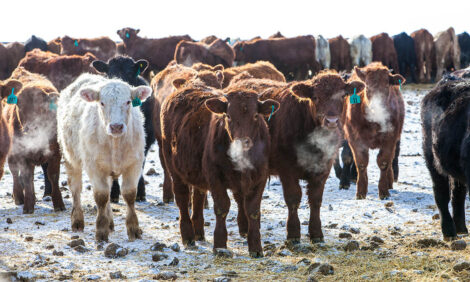



Have Subsidies Hindered Progress on Livestock Farms?
GLOBAL – Direct farm support payments have hindered agricultural progress across the globe, scientists heard this week.Political intervention has unintentionally made producers farm for subsidy rather than gains in productivity and efficiency, according to one of the British Society of Animal Science key note speakers.
Using New Zealand (NZ) lamb production as an example, Sir Lockwood Smith, PhD, showed how farmers can innovate after the removal of production payments.
Speaking at the BSAS AGM, he said subsidies introduced in the 1970s eroded New Zealand productivity in the 1980s.
By 1985 political intervention accounted for between 30 and 40 per cent of the value of agricultural products.
Sir Smith said this was as high as 90 per cent for sheep meat, which prompted flock numbers to skyrocket. Beef and dairy products were subsidised to the tune of around 13 per cent.
The decision was then made to scale back subsidies from farming.
“We had no choice,” said Sir Smith, Commissioner for NZ to the UK. “The industry was suffering.”
“However, farmers didn’t like it, I will never forget the protests outside parliament – thousands turned up.”
The subsequent upturn in productivity has been considerable. Around 30 million sheep today match the output of 70 million sheep in the 1990s, Sir Smith added.
"It was fascinating to see that as technology and science were picked up again, the amount of sheep meat exported increased rapidly.”
Lamb carcass yields lifted 110 per cent between 1993 and 2010, with dairy output lifting 40 per cent over the same period, he explained.
“Necessity is a positive force in science,” he said.
“Protectionist policies targeted at the agricultural sector and this kind of distortion always impedes the uptake of science.”
He said this will “always be the case.”
The French perspective is similar, according to Claire Mosnier, researcher at Clermont University’s Herbivore Joint Research Unit.
“Of course subsidy is not a good thing for efficiency,” she told the conference.
“But, right now, if subsidies were taken off, the profit would be so low, farming could stop.”
In her assessment of French farm efficiency, she said the industry, while accounting for a third of Europe’s beef herd, is characterised by high dependency on public subsidy and low incomes.
However, she sees French beef farming at a cross roads where it must embrace efficiency with a scaled-down workforce.
“Good efficiency is really important,” said Mrs Mosnier. “Before it was labour efficiency and ability to catch subsidy.
“Now, farms are quite big and the challenge is to drive efficiency without seeing a rise in labour.”
UK farm productivity has also been led astray by farm subsidy in the past, according to analyst Mark Topliff of the Agricultural and Horticultural Development Board.
He said the UK beef industry has undergone a transitioning process after 2005, when a host of beef payments were removed.
“The beef sector did well out of the support system,” said Mr Topliff. “I was a consultant at the time and farmers were preoccupied with how to maximise their subsidy payment rather than moving forward in improving production and management.”
And with payments taken away, the beef sector has made marked progress in using genetic potential of cattle and in marketing the end product, he added.
“The industry has come a long way since 2005,” said Mr Topliff.
However, he concluded that the average producer does not seem to have improved the productivity of their cows.
Michael Priestley
News Team - Editor
Mainly production and market stories on ruminants sector. Works closely with sustainability consultants at FAI Farms



